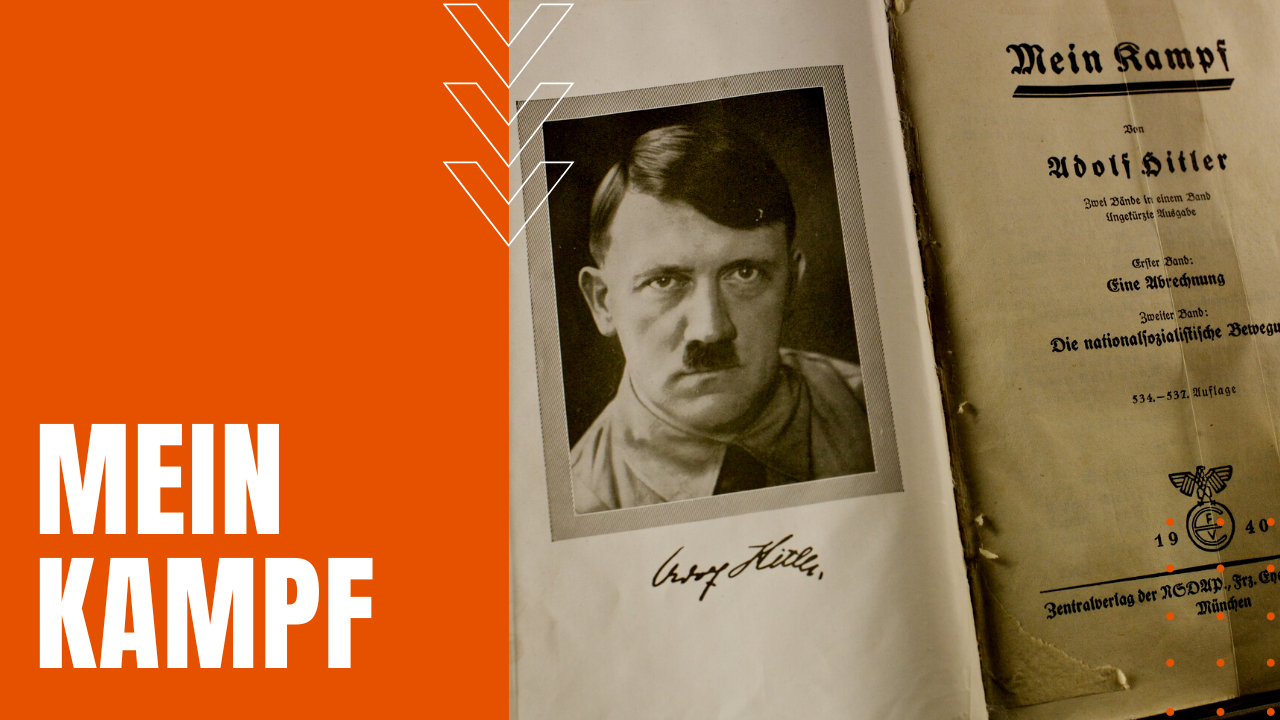Mein Kampf: Hitler’s Forewarning Autobiography

After his failed attempt to take control of the Bavarian government in an infamous coup d’é·tat, Adolf Hitler wrote the first volume of Mein Kampf during his confinement at Landsberg Prison, dictated by his loyal friend and fellow revolutionary, Rudolph Hess.
Hitler’s Struggle
Translated into English as “My Struggle,” Hitler’s autobiographical Mein Kampf reminisces about his time in Vienna, when at first he was tolerant of the Jews and Slavs he met there, dismissing the antisemitic press as unworthy of his consideration.
As his 400-plus page diatribe presses on, however, Hitler’s views about Jews and non-Aryan races would devolve into full-on racism, furthering the longstanding fabrication about a Jewish plot to control the world.
Aryan Purity for Germany
In Hitler’s view, the German state was not an economic or social entity, but a racial one, affirming that the only way to revitalize Germany was an insistence on Aryan purity and the removal of non-Aryan races.
He also called for Lebensraum or “living space,” which saw the need for Germany to expand eastward into Russia by pushing out or eradicating the Slavic people. Hitler went on to write that,
“The nationalization of our masses will succeed only when, aside from all the positive struggle for the soul of our people, their international poisoners are exterminated,”
Adolf Hitler
making a clear reference to his future plans for Hitler’s “Final Solution.”
The Success of Mein Kampf
While Hitler’s first volume of Mein Kampf was published in 1925 to little fanfare or sales, his second volume published in 1927 to equally unimpressive sales focused on his views on national socialism and the need for a lone authoritarian dictator to steer the course of a revitalized Germany.
Mein Kampf’s dismal sales numbers tipped upwards after Hitler came to power in 1933, rising so dramatically in popularity and sales that newly-married couples were generally given a copy as a wedding gift, filling Hitler’s personal coffers with $27,000,000.00 in royalties in today’s currency.
Once in power, Hitler tried to distance himself from Mein Kampf in a number of published articles, dismissing the volumes as his “fantasies behind bars,” making Mein Kampf an early indicator of the horrors to come.
